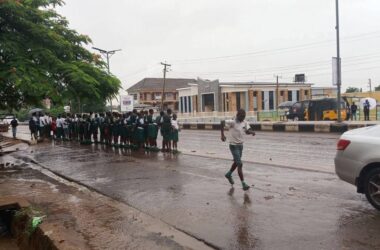The death toll from the petrol tanker explosion at Dikko Junction, Niger State, has risen to 86, while 55 people were injured and taken to hospital. The incident, which occurred on Saturday morning, unfolded after a speeding fuel tanker crashed, spilling petrol onto the road and triggering a catastrophic fire when it exploded.
Initial reports from Saturday indicated that 70 people had died and 50 were injured. However, as search and recovery operations continued, more bodies were found, bringing the confirmed death toll to 86.
Abdullahi Baba-Arah, Director-General of the Niger State Emergency Management Agency (NSEMA), confirmed the updated figures in a statement released on Sunday.
The statement detailed that mass burials were conducted for the deceased at the Dikko Primary Healthcare Centre.
“Eighty of them were buried in a mass grave at the Dikko Primary Healthcare Centre premises, while five were taken by their relatives for burial in the town, and one died at Dikko Primary Healthcare Centre,” Baba-Arah said. The operation, carried out in collaboration with Gurara Local Government officials and volunteers, lasted from 5 p.m. to midnight.
Witnesses reported that some residents attempted to scoop the spilled fuel before the explosion occurred, which led to additional casualties among both those collecting the fuel and bystanders trying to rescue them.
Niger State Governor Mohammed Umar Bago visited the scene of the explosion and took immediate action to prevent similar incidents. He announced a ban on vehicles coming from the Maje axis from using the Dikko Bridge, redirecting them to the underpass for proper U-turns. The governor also called for the Federal Road Safety Corps to establish a detachment in the area to enforce traffic regulations.
Bago expressed his gratitude to emergency responders, including NSEMA, the Fire Service, and medical professionals, for their swift actions during the crisis. To further assist the injured victims, doctors from Minna hospitals have been redeployed to Suleja General Hospital, where many of the survivors are receiving treatment.










